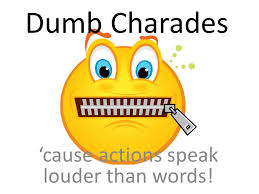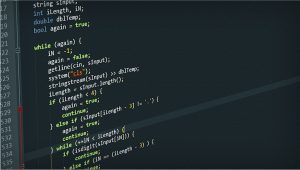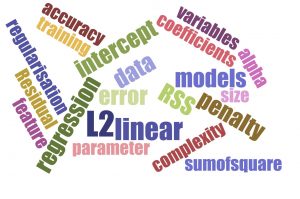Introduction
All of us have been there – coming to office after a hectic weekend trip or a late night binge on Sunday! It is difficult to drag yourself out of bed on Monday morning. To add to it, imagine having a team meeting on Monday morning where everyone in your team tells what happened in the weeks gone by and what is planned in the weeks to come!
One of my managers used to hold these team meetings religiously. I can understand the reason behind these meetings but at times, you would see people walking in these meetings with sleep in their eyes. You could see people yawning when you are discussing the week gone by!
To beat this routine, we decided to start these meetings with ice-breakers or some games which pull people out from the weekend slumber. Since this was a data science team, we decided to keep these games related to data science. Because of these games, the meetings transformed into high energy conversations and lot more fun than what they used to be.
Since then, I have developed a repository of games and I use them before almost any long format team meeting. I am sharing some of them in this article today. I am sure these will appeal to the data nerd inside you!
Go on – read and play along as you read!
List of Interesting Games
Game 1: The Circle 
The team / group of people who forms a circle. One person comes inside the circle and has to ask one question on any package / technique / library related to data science which he / she thinks that the rest of the team won’t be able to answer. If the rest of the team answers the question, the person gets out of the game. If the team is unable to answer, the person gets back into the game. The person entering the circle nominates someone to come inside the circle irrespective if he remains in the game or not. The last person remaining in the game wins.
Rule 1: The questions can’t be repeated.
Rule 2: The person cannot take hints from the team members.
Rule 3: Every individual should get a chance before a person gets a second chance.
Rule 4: Every individual is given 1 min to ask a question, and the team members have to answer immediately.
Tip : This game can change its character depending on how many people are playing it. In smaller team settings, it could be a lot of fun to ask some simple basic questions and you will be surprised to see how many people miss out on them! For example, ask whether a significant interaction term in regression means correlation in input values? and see the results for yourself.
Game 2: Data Science Dumb charade
People are divided in 2 teams. One individual from each team comes forward and is asked to act out something related to data science. It could either names of a package, library or algorithm. The demonstrations can end up being hilarious, wacky and funny.
The twist is that the teammates have to not only guess the name but also tell what it does. Each winning team is awarded one point every time.
Rule 1: The person cannot speak or murmur or write anything.
Rule 2: The team has to guess within 2 minutes
Rule 3: The names given should be valid
Rule 4: Correct guess wins 1 point. No negative marking for incorrect guesses.
Tip: If you are planning to play this, I would recommend deciding on a few signs before hand. Decide on signals whether the thing you are acting on is related to tools or techniques. If it is a tool, R vs. Pytohn vs. other language.
Game 3: Who am I?
There is a group of people and they all are given one post-it. They have to write a name of any package, library, tool or a language on the post-it secretively. Then each person sticks that post-it to another team member’s forehead without revealing what is written on the post it. Each person can have only one post-it on their forehead. Now, individually they have to guess what is written on their post-it by asking yes or no questions to other team members. The person who is unable to guess the name correctly at the end has to treat the team on a coffee.
Rule 1: The person is not allowed to see his/her sticker.
Rule 2: The person who has been asked a question is not allowed to speak words other than Yes or No
Rule 3: No hints can be exchanged.
Rule 4: No individual can write their own post-it.
Rule 5: You can not ask more than 1 question to same person simultaneously
Game 4: Writing efficient code!
Time to open up your laptops. People are sub-divided in 3 – 4 sub groups and they are given a task to be applied on a data (like removing missing values, sorting the data, etc). They have to perform the task with minimum number of iterations. Most optimal code wins the challenge (based on time of execution).
Rule 1: Each team has a maximum of 15 mins to write the code.
Rule 2: The code evaluation should happen on the same machine for all the teams.
P.S. Lazy operations are not allowed!
Game 5: Can you find me?
There is a word cloud created with attributes of a machine learning algorithm. Based on the information provided, the teams have to guess which algorithm is described in the word cloud. There could be several rounds and difficulty level could vary from easy to hard. Each team winning a round will qualify for the next round.
Rule 1: There may be two algorithms which can be described in the word cloud.
Rule 2: Each team has limited amount of time(say 5 min).
Rule 3: Teams can keep guessing until they find out the true algorithm(s).
Rule 4: The level of difficulty for the word clouds increases with every round.
Rule 5: The team winning the final round wins the game.
Example: Here is a word cloud shown and you have to guess the name of algorithm associated with this word cloud:
1. The terms Linear and Regression together shows that this is a linear algorithm which is used for regression problem.
2. The terms Sumofsquare, Coefficient and Penalty: It can be seen as a term which adds a penalty to sum of squares of coefficients in the optimization objective.
3. The term L2 has a special meaning which can be used to identify ridge regression algorithm.
4. The term Alpha can be seen as the parameter which balances the amount of emphasis given to minimizing RSS (Residual sum of square)
So from above points, we can identify that the algorithm is a Ridge Regression.
Game 6: What do I stand for ?
Acronym – A group is asked questions on the full forms of different data science terms.
Rule 1: Time given for every attempt is 10 seconds
Rule 2: Points gained for a correct answer = +2. Incorrect answer = -1
Rule 3: For every passed question answered correctly, a team wins = +2
Example: Ask the full forms of the acronyms like RMSE, XG Boost, FTRL, SVM, etc.
Game 7: Passing the Pass
There is a box which has tickets in it with names of different libraries, packages, etc. People sit in a circle and music is played. People pass the box till the time music is played. When the music stops, the person who has a box will need to pull out a ticket and then say 3 sentences about the ticket he / she gets. Once done, the person moves out of the game.
Rule 1: The person playing the music should not be able to see the rest of the team
Rule 2: Music should be played for a fixed duration
Game 8: Quiz me up?
Normal quizzing round. In which the challenge consists of 20-30 questions on data science. By the end of the game, the person answering the maximum number of questions will be ranked number 1 and so on.
Rule 1: The questions should have an equal distribution of easy, intermediate and hard questions.
Rule 2: Questions can be passed to another candidate, and each pass questions wins 2 points.
Rule 3: The challenge can have a mix of coding questions, visual questions and purely observational questions
Rule 4: Each correct answer wins 1 point and no negative marking for wrong answers.
Rule 5: the person buzzing first gets 15 secs to answer the question.
Example: The questions can be on anything related to data science.
For eg, Which of the following uses data on some object to predict values for other object ?
a) Inferential
b) Exploratory
c) Predictive
d) None of the Mentioned
End Note
I hope you found these games interesting. Feel free to customize them as per your needs. Go and play these games with your teammates and tell me what was your experience. We will keep bringing you such interesting reads and will keep exciting you.
In case you have any confusion about any of the games, please drop in your comments below. And if you have played any of these games I would love to know what was your experience. If you have some more additions to the list, feel free to tell us through comments.










Kuna, Nice Post really such games would even boost the things we missed and start a week with a tinch of knowledge. Cheers !!